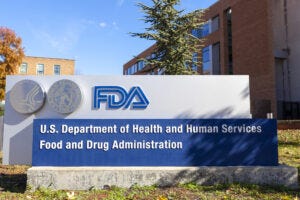
CSL’s recent approval and the retraction of an AdCom meeting for Biomarin may demonstrate the US FDA has become comfortable with hemophilia gene therapies and AAV5 vectors.
Last week, while much of the US was preparing turkey dinners and bracing itself for family feuds, the US Food and Drug Administration (FDA) was ‘giving thanks’ to gene therapies, specifically against hemophilia.
On Tuesday, CSL Behring won approval for Hemgenix (etranacogene dezaparvovec) – a single-dose therapy to treat adults with hemophilia B. The approval came without an FDA Advisory Committee (AdCom), a meeting generally used by the Agency to review and evaluate data concerning the safety and effectiveness of investigational and marketed therapies.

Image: DepositPhotos/
grandbrothers
Meanwhile on Wednesday, BioMarin said it had been notified that the Agency no longer plans to hold an AdCom meeting to discuss the BLA for Roctavian (valoctocogene roxaparvovec), its proposed gene therapy for adults with hemophilia A.
The cancelation of the AdCom does not necessarily mean the FDA has made up its mind to approve Roctavian but could demonstrate “the FDA could be getting more comfortable with hemophilia gene therapies […] and may not have major issues with AAV5 safety,” according to Joseph Schwartz, an analyst from SVB Securities Research. Both Hemgenix and Roctavian comprise of an adeno-associated virus 5 (AAV5) vector.
“While we understand that hemophilia B is not hemophilia A, hemophilia A is a tougher target, and there appears to be more variability associated with gene therapy in hemophilia A, the FDA may have turned the page on AAV5 gene therapy risks.”
Schwartz noted Roctavian was approved in the EU back in June, and as “regulatory agencies tend to think more alike than differently,” approval is likely to come in the US as well.
“The FDA recently requested Phase III three-year data that will become available in early 2023 that suggests to us that the FDA is dotting the i’s and crossing the t’s and serious about the application.”
About the Author
You May Also Like

schedl_b_and_w.jpg?width=100&auto=webp&quality=80&disable=upscale)
schedl_b_and_w.jpg?width=400&auto=webp&quality=80&disable=upscale)


